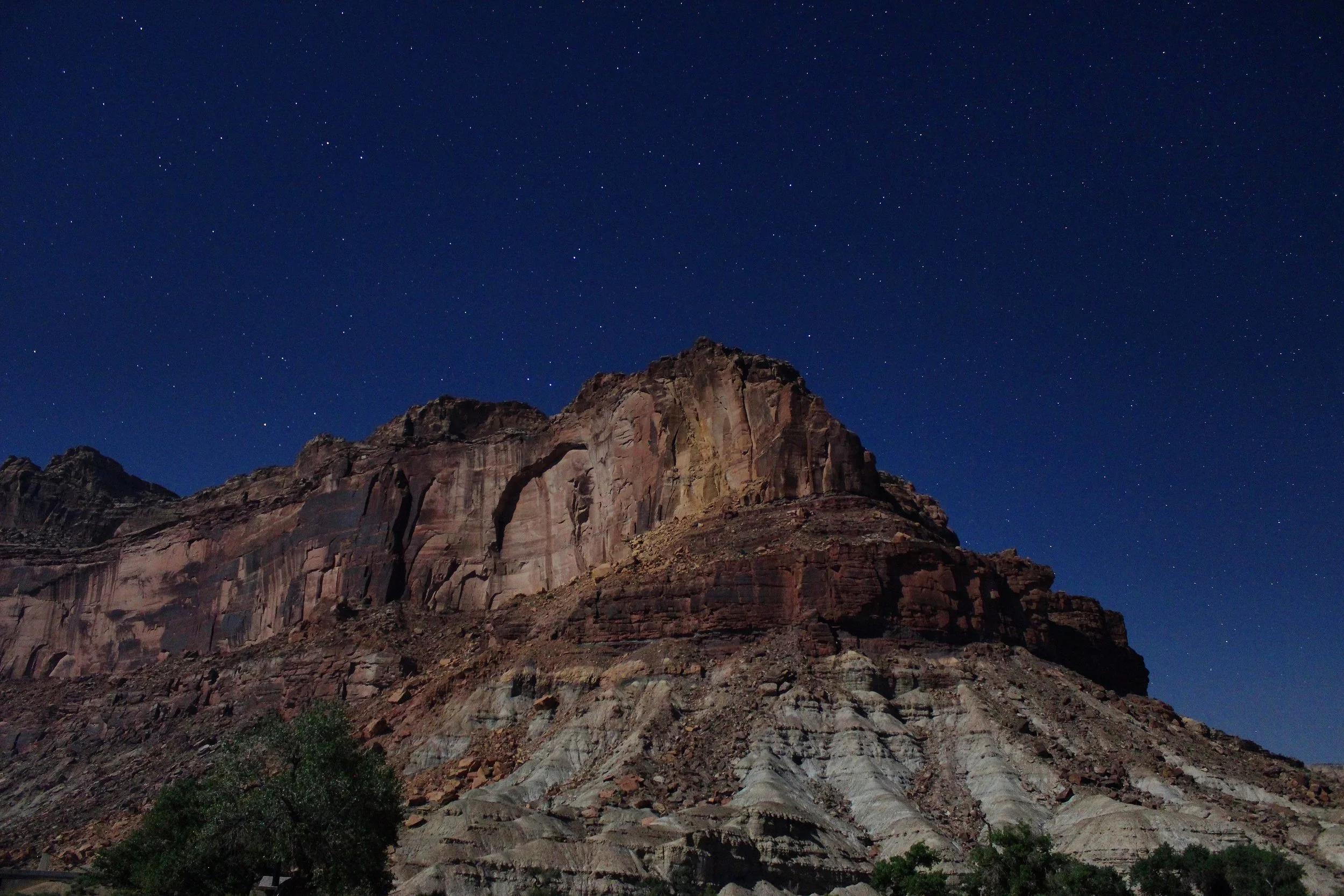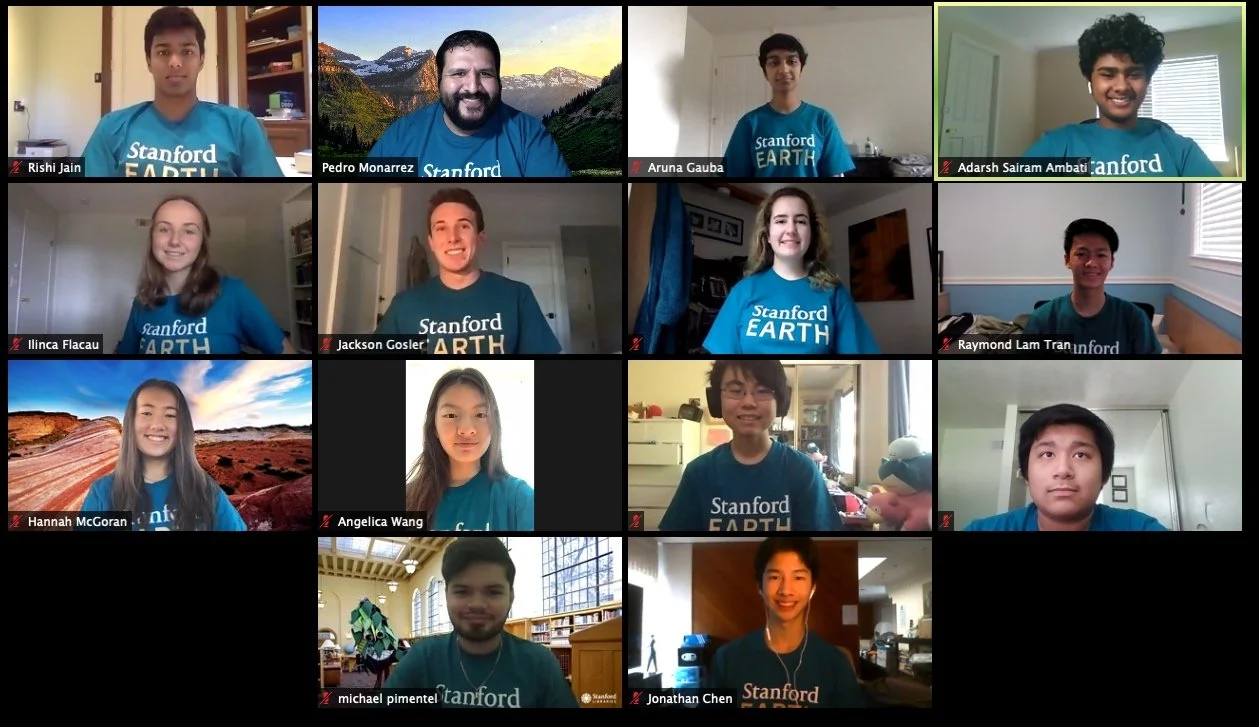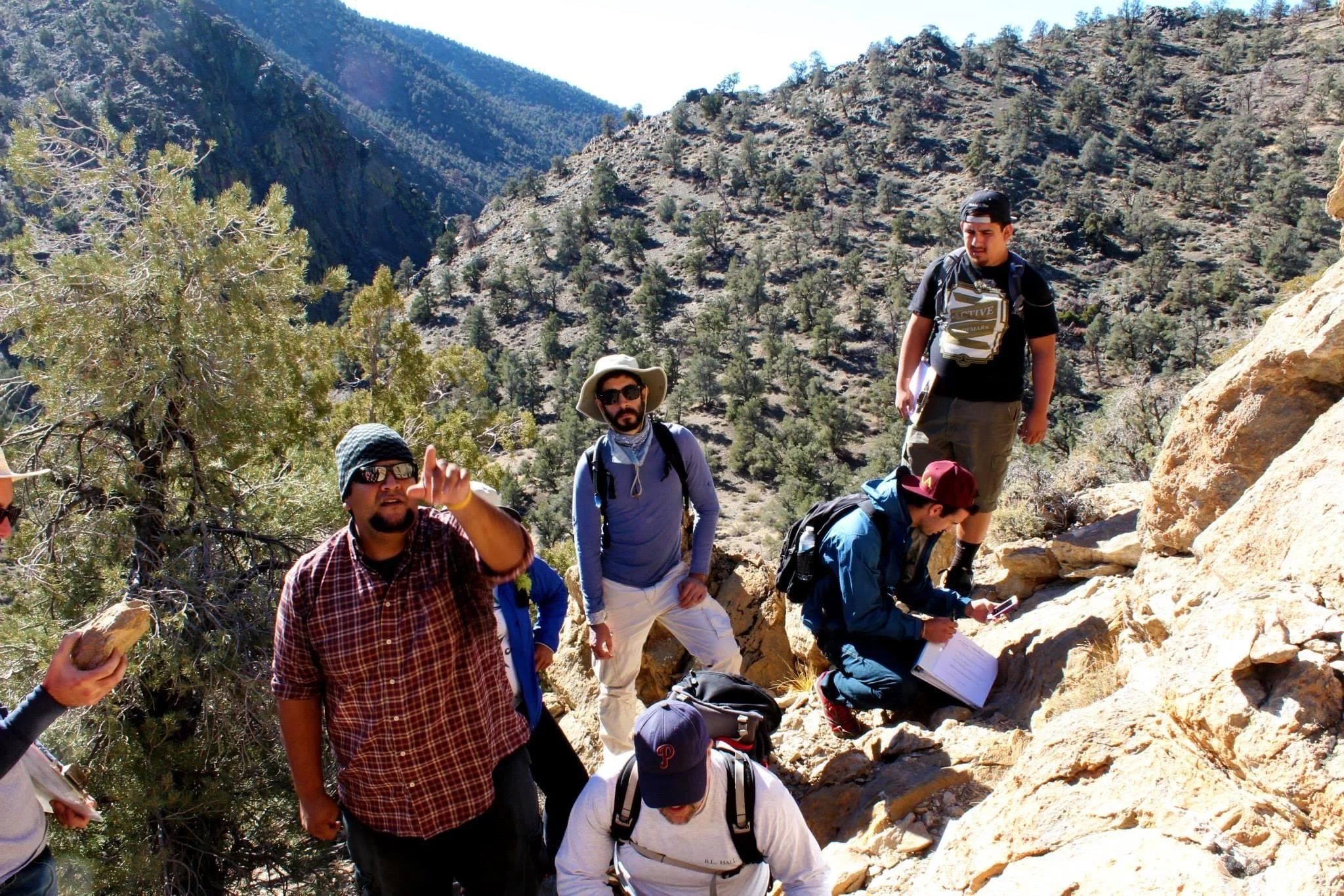
Teaching
Teaching Philosophy
I strive to make geology interesting and accessible for students. As an educator, it is my responsibility to instill the importance of understanding the dynamic nature of the physical Earth while making it as inclusive for everyone to learn. The need for members of our society to be knowledgeable about the physical Earth has become crucial, as humanity faces the emerging threat of a changing climate. Having students learn and understand the geology of their immediate surroundings can instill in them an appreciation of geology with the goal that they become stewards of our planet.
Pedagogical Approach
I employ various pedagogical approaches in the classroom, but I particularly rely on a student-oriented approach using a backwards class design (click here to learn more about this process) and active learning to get students engaged. This approach allows me to identify the learning goals for students first and designing my course based on these goals.
-
Non-Major Undergraduates
When I lecture in introductory courses, I make the material relatable by taking the opportunity to incorporate local geology into the course. I use this teaching opportunity to learn more about the geologic characteristics of the region where I am teaching so that I can point to specific examples that the students might recognize in their everyday lives (place-based learning). Applying local geology to the classroom overall has been a positive experience for students, which has helped them develop observational and critical thinking skills and an understanding of the Earth around them.

-
Major Undergraduates
Geology majors are the torch bearers of our field, but geology as a career can be a difficult concept for students to grasp if they have not been exposed to what a typical geologist does for a living. Geology majors are typically aware of their surroundings and appreciate the geologic context in which they live in, so with them, I focus on how to apply their knowledge and skills to potential academic and industry careers. I do this by speaking with them individually by providing detailed, written feedback on their graded assignments to offer suggestions for improvement.
-
High Schoolers
As a postdoc at Stanford, I ran the Stanford Earth Young Investigators Biodiversity internship program. The COVID-19 pandemic forced us to meet entirely online each summer. Given the difficult circumstances, I incorporated the CARE approach (community, agency, representation, and equal access) during the internship programs to promote student flourishing. This resulted in community bonds among the interns and successful completion of their group projects and abstract submissions for the 2020 and 2021 AGU Fall meetings.

Teaching Experience
Instructor of record
Stratigraphy and Field Geology at UCLA Spring 2024
Major Events in the History of Life at UCLA Winter 2024, Fall 2024
Earth’s History of Global Change Lab at University of Georgia Fall 2014, 2016, 2017
Introduction to Physical Geology Lab at California State University, Fullerton Fall 2011, Spring 2012
Sedimentation and Stratigraphy at California State University, Fullerton Spring 2011
Teaching assistant
Sedimentary Geology (lecture and lab) at University of Georgia. Spring 2015, 2016, 2017, 2018, 2019
Life and Ecologies of the Past (lab) at University of Georgia. Fall 2015, 2016
Paleontology (lab) at California State University, Fullerton. Fall 2010
Sedimentation and Stratigraphy (lab) at California Spring 2021 State University, Fullerton.
Additional Teaching Experience
Stanford Earth Young Investigators Biodiversity internship program (Instructor) at Stanford University. 8-week summer research Summer 2020, 2021, 2022 experience program for high school students.
Stratigraphic Paleobiology Field Course (TA) sponsored by the Summer 2017 Paleontological Society and Society of Vertebrate Paleontology.
Training
Postdoc Pedagogy Journal Club, Stanford University 2020–2021
Stanford Postdoc Teaching Workshop 2020
Beyond “Tolerant”: Putting Diversity, Equity, and Inclusion into 2020 Action in and Outside the Classroom Workshop, Stanford University
Helping Your Students Check Their Progress: Goal-Oriented 2020 Assessments Workshop, Stanford University
Setting the Foundation: Starting with Learning and Working Backwards 2020 Workshop, Stanford University
Learning By Design: Course Design for Effective Student Learning 2019 Workshop, Stanford University
Teaching Inclusively online workshop, Center for the Integration of 2017 Research, Teaching and Learning (CIRTL) Network

